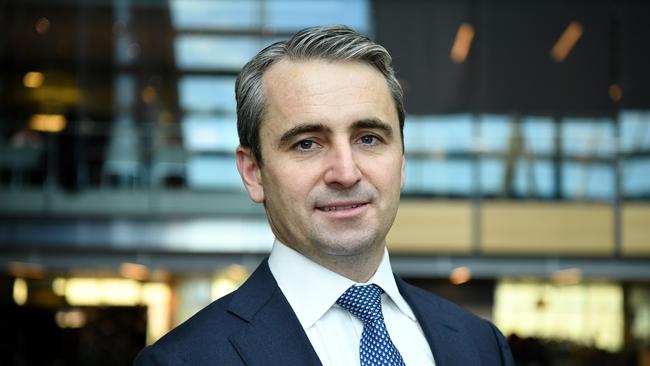CBA bankers see short-term bonuses dwindle as executive pay crackdown rolls on

An unnamed senior executive also forfeited all their unvested deferred equity awards because of a reputational hit suffered by CBA as a result of the executive’s business unit.
In his first full-year result as CEO after starting in the job on April 9 last year, Mr Comyn received $4.36 million in statutory remuneration.
This compares to the halcyon, pre-royal commission days of banking in 2016, when then-CEO Ian Narev’s pay swelled from $8m to $12.3m after qualifying for multimillion-dollar share bonuses for CBA’s performance in previous years.
The downward pressure on industry pay has escalated after the royal commission.
More specifically, CBA has now booked $2.17 billion in remediation and program costs, with $996m of that amount set aside in 2019.
Remuneration committee chairman David Higgins highlighted in the CBA annual report today that Mr Comyn, whose actual pay in 2019 was $3.4m, did not get an increase in his fixed remuneration.
Further, the CEO’s short-term bonus of $747,450 was only 45 per cent of the maximum available, and his long-term variable pay of $464,108 vested at an even lower rate of 24.3 per cent.
There was zero vesting in relation to the total shareholder return measure in Mr Comyn’s scorecard.
He forfeited $1.27m in previous deferred equity awards, as well.
The big loser in the remuneration report was an unnamed executive, likely to be former wealth boss Annabel Spring, who forfeited all their unvested deferred awards.
Sir David said in his summary that the action followed “performance outcomes of their business unit that have resulted in significant adverse financial, customer and reputational impacts”.
A CBA spokesman declined to identify the former executive, but said accountability was an “integral part of CBA’s values”.
“Variable remuneration awarded to our people reflects customer, risk, and business outcomes,” he said.
“The CBA board has the discretion under its award plans to adjust variable remuneration awarded but not vested, including to zero, where it considers it appropriate to do so.
“We confirm the board exercised its discretion to forfeit all unvested deferred awards for a former group executive in light of outcomes in the business unit for which the executive, as a result of their role, had overall responsibility for during their tenure.”
Elsewhere in the group, chief risk officer David Cohen, whose total pay fell from $2.84m to $1.95m.
Mr Cohen’s fixed pay of $1.2m was unchanged, despite a promotion from chief risk officer to deputy CEO.
Sir David, who will retire from the board at the end of the year, said in the annual report that CBA would continue to monitor and adjust its remuneration policy and frameworks to meet the spirit and requirements of revised regulatory standards.
“We will continue on our path of reinforcing better risk and customer outcomes through remuneration that appropriately balances financial and non-financial performance measures, enables risk and consequence management frameworks, and provides greater transparency to support cultural change,” he said.



Commonwealth Bank has continued a rolling pay crackdown for its senior bankers, with a poor performance on risk and reputation leading to lower short-term bonuses for 14 of 15 eligible executives, including chief executive Matt Comyn.